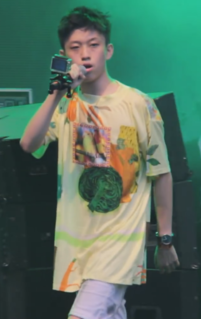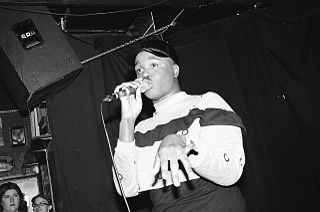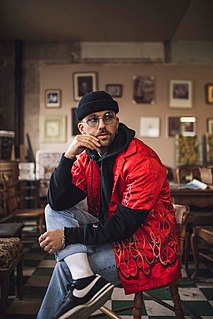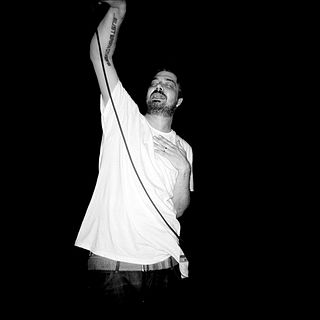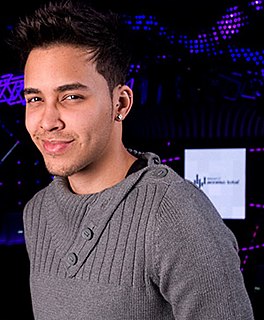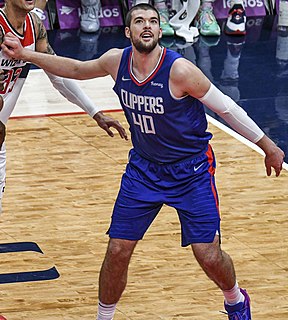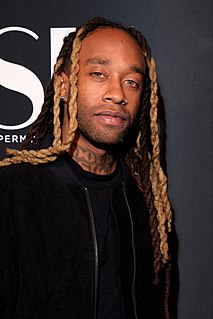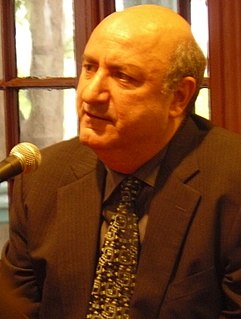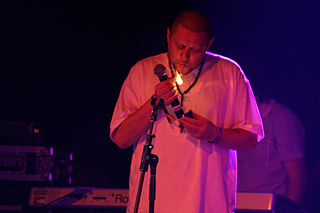A Quote by Rich Brian
I was, like, 12 or 13; the first hip hop song I tried to rapping to was Macklemore's 'Thrift Shop,' and my English was so bad, but learning to rap to different songs really helped me with my pronunciation, and looking at the lyrics on Rap Genius and stuff like that.
Related Quotes
To me, that's the biggest problem with hip-hop today is the fact that everyone believes that all of hip-hop is rap music, and that, when you say "hip-hop," it's synonymous with rap. That when you say "hip-hop," you should be thinking about breakdancing, graffiti art, or MCing - which is the proper name for rap - DJing, beat-boxing, language, fashion, knowledge, trade. You should be thinking about a culture when you say, "hip-hop.".
In this time, we incorporate money and media, and it's split up like apartheid, where when you say "hip-hop," you think just rap records. People might have forgot about all the other elements in hip-hop. Now we're back out there again, trying to get people back to the fifth element, the knowledge. To know to respect the whole culture, especially to you radio stations that claim to be hip-hop and you're not, because if you was a hip-hop radio station, why do you just play one aspect of hip-hop and rap, which is gangsta rap?
I like to consider myself a student of hip hop. There's a certain level of certification and wit and craftsmanship that comes with rapping. As rap progresses - it's a young genre - it's becoming way more mainstream, crossing over to different lanes. I feel like it's losing its essence in a way, because it's getting commercialised. I want to keep it fresh and keep it progressive, but I also want to respect the foundation of what rap is about.
Legions of young hip-hop fans are as against this as hip-hop's most fierce critics. There is a huge underground movement within hip-hop circles that against these representation. You can hear this message on tons of lyrics and rap songs produced by independent emcees. But they are fighting against a well-oiled and well-financed machine.
I had written rap songs in the early '90s and even did a couple homemade rap songs with my brother in like '88 or '89, but it was just like... I don't even know how to say it. Just plain rap. I was just rapping about whatever, there was no real style or direction, it was just semi-braggadocious rhymes that probably imitated 100 other rappers.
Rap music and rap records used to always be like this: we get one or two shots to a piece cause it was a singles marketplace and when the major record companies saw that it could also handle the sales of the albums then they started to force everybody to expand their topics from 1 to about 10 and you gotta deliver 12 songs, so a lot of times if you took a person who wasn't really developed, and the diversity of trying say 12 different things, you know the companies were like "Cool! Say the same thing 12 different ways."
I've got all of the old school vinyls from the '70s - even further back, like the jazz music in the '40s, '50s, '60s. Then I've got all the '80s stuff underground, hip-hop when hip-hop really first started. The '90s stuff. All of the good stuff, because I'm really into music, and it helps me create new songs now.
I might ask about the first time a person heard a song that they really responded to, like when I asked Mos Def when he first "got" hip-hop and he went into this memory about how hearing someone rap really affected him. He wasn't simply remembering the event. It was almost like he was occupying that space again. When you can really transport an interview subject like that, your readers can feel it and it helps them to connect with the artist.
I mean, there's an aspect I've always said that is - it's, you know, it's not poetry but it's kind of like it. It's not song lyrics but it's kind of like song lyrics. It's not rap but it's kind of like rap. And it's not stand-up comedy but it is kind of like stand-up comedy. It's all those things together.
